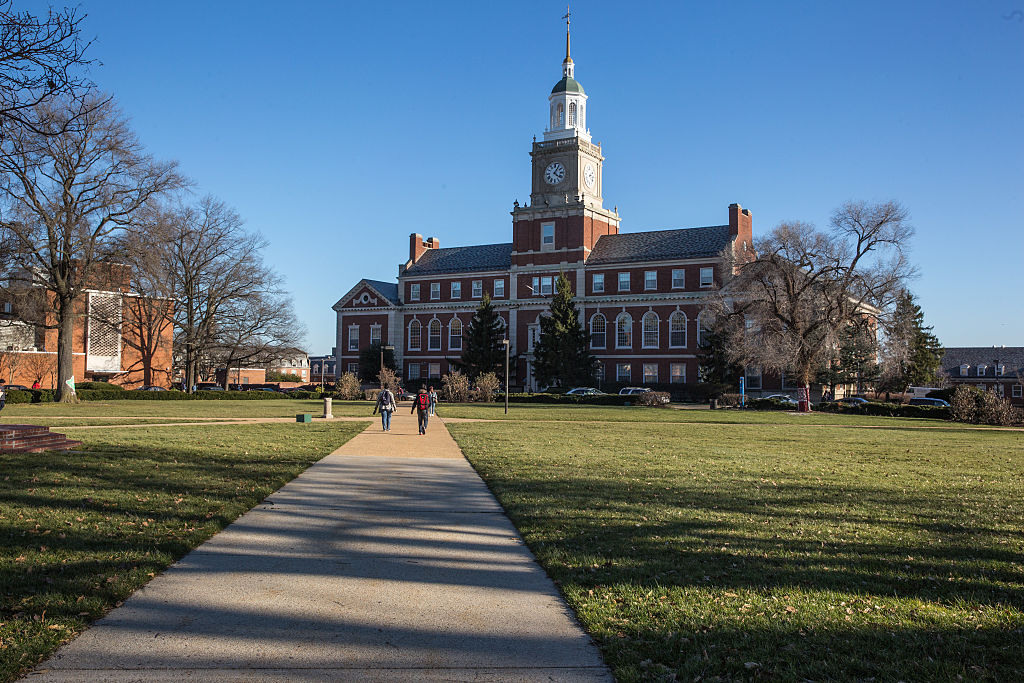The Student Freedom Initiative Is Saving HBCU Students From Debt
Mark Brown, executive director, Student Freedom Initiative. | Source: Student Freedom Initiative / Student Freedom Initiative
It’s no secret that the impact of student loan debt can be crippling to the futures of many in the nation.
In most cases, the damage is even worse for Black students who attend HBCUs because of the increased financial need to fund their educational experience due to the racial wealth gap and racist financial practices that have thwarted Black people since this country’s inception.
The weight of bad student loan agreements can shift the trajectory of not only one individual’s life but also the possibility of generational wealth for an entire family.
The Student Freedom Initiative is one of the organizations trying to correct this problem by providing social and economic mobility for STEM studying juniors and seniors at HBCU for years to come.
Black billionaire Robert F. Smith, the founder and chairman of the Student Freedom Initiative, has been an advocate for freeing students from student loans for a while. He made major news in 2019 after spending approximately $38 million to pay off the loan debt of around 400 students who graduated from Morehouse College that year.
Now, Smith and his Fund II Foundation are each contributing $50 million to the Student Freedom Initiative to create a pathway for students at HBCUs to achieve financial freedom.
One of the organization’s main objectives is to eliminate the Parent PLUS loan and to create a consistent source of funding to be able to help students gain their degrees.
“The reason for the fund is to create an endowment without walls for all of the participating HBCUs so that never again any student that is a junior or senior majoring in STEM would need to get into this debt trap of Parent Plus,” Mark Brown, the executive director of the Student Freedom Initiative, told NewsOne in an exclusive interview. “[The students] will always be able to do it a different way and keep their parents from incurring those debts that default at five times the rate of others and keep students with debt for two times as long.”
Students would be eligible to get up to $20,000 per academic year to help with their educational goals. Then, once the students have found a job after graduation, they would pay back into the program 2.5% of their income per $10,000 that they borrowed from the Fund. According to Brown, individuals wouldn’t pay back into the program if they went to graduate school or earned below the poverty line.
“The most valuable thing a student has is the degree that they will put on the wall,” Brown said. “If we invest in their persistence to graduation we do the holistic thing and I don’t think there’s another product that takes a holistic approach like this.”
The organization also has an internship program that matches HBCU students with companies that offer paid internships, an emergency fund for students, cyber technology improvements for HBCUs and other services.
Oftentimes when discussing the scope of student aid at historically Black colleges and universities, it’s only in the context of grants and scholarships. But a more comprehensive approach could give HBCU students a better chance to succeed.
That includes an investment in the overall financial stability of these HBCU students, not just getting them to their graduation day and leaving them to fend for themselves with the odds stacked against them. The Student Freedom Initiative is setting a precedent for how to think about financial freedom for students at HBCUs.
“It’s not just about getting that last mile of funding for college,” Brown added. “It’s having the social and economic mobility that occurs with having a really good paying job.”
Brown said the Student Freedom Initiative wants to eventually grow enough to be able to provide every HBCU student with access to financial alternatives. It is already working with dozens of HBCUs and has provided assistance to more than 100 students so far.
“We can’t grow fast enough,” Brown said. “The economic need for our students is significant.”
SEE ALSO:
Businessman Robert F. Smith, Prudential Launch $1.8M Grant Program For HBCU Students
Nick Cannon Surprises HBCU Scholars By Eliminating Their Outstanding Student Loan Debt
[ione_media_gallery id=”3903711″ overlay=”true”]

